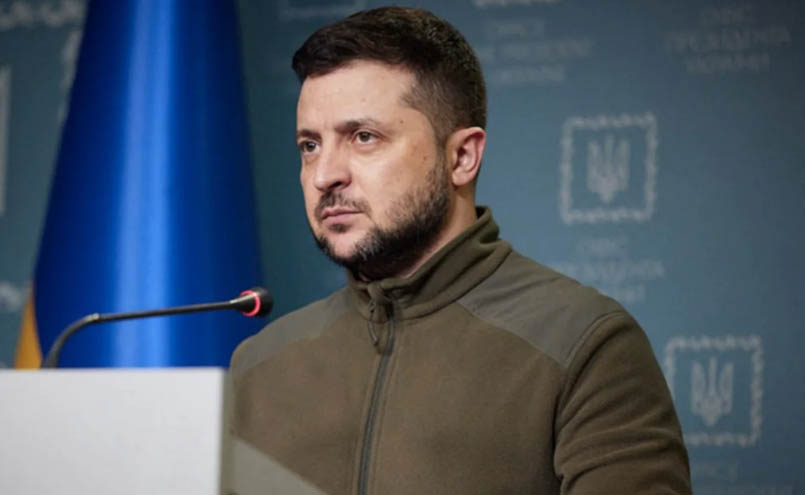The President of the Group of Seven (G7) is working to finalize a $50 billion loan to Ukraine, which will be repaid using the interest and profits from frozen Russian assets. Using Moscow’s funds to support Kyiv’s war effort marks a significant escalation in the economic conflict Washington is waging against Russia.
European Commission Executive Vice President Valdis Dombrovskis explained, “The G7 presidency is now aiming for a political commitment on participation in this… loans initiative around the end of October, which would allow all G7 lenders sufficient time to operationalize loans by the end of this year.”
The plan involves providing Ukraine with $50 billion, labeled as a loan. Instead of Kyiv repaying the funds, frozen Russian assets held in G7 nations will be used to service the loan. Reuters explained, “The loan for Ukraine is to be serviced from profits generated by Russian assets immobilized in the West. More than two-thirds of the assets, some 210 billion euros, are in the EU.”
The G7 includes the US, UK, France, Canada, Japan, Germany, Italy, and the European Union, with the EU expected to contribute the majority of the funds—$35 billion.
Dombrovskis reports that Canada, the UK, and Japan are supportive of the proposal, but Washington is withholding its backing due to concerns that the EU might unfreeze the Russian funds, leaving no clear mechanism for repaying the loan. In response, the EU is proposing to extend the freeze on Russian assets by three years to address the White House’s concerns.
Using Russian funds to finance Ukraine’s military efforts against Russian soldiers is likely to be seen as a significant provocation by Moscow. Throughout the conflict, the White House has been waging an economic war—alongside the proxy war—against Russia in Ukraine.
Washington and its allies have imposed numerous sanctions and economic penalties on Moscow in an effort to weaken the Kremlin’s war machine. However, while the Russian economy has largely adapted to the sanctions, cutting trade with Moscow has negatively impacted some European economies.
 Telegram is where we really talk. Don't miss out!
Telegram is where we really talk. Don't miss out!








